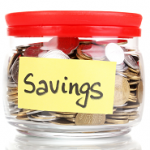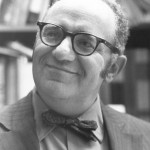Yesterday, a statist said to me “…but, the state is what makes us all civilised! We’d all be children or savages if it weren’t for a government that preserved the rule of law.” Needless to say, I found this even funnier than “who will build the roads?” Nevertheless, I will write now, for the benefit of all statists who share this mistaken belief, on why this is incorrect and why, in fact, the reverse of this is true.
The State is Turning You into a Child and a Savage

Murray Rothbard in 10 Great Quotes

The ‘Great Authors in 10 Quotes’ is an ongoing series meant to expose libertarian-leaning readership with some of the most noteworthy thinkers in the classical liberal, libertarian, and anarchist traditions. The challenge is finding material deep enough to reflect an author’s thought, while still being accessible for a brand new reader. We encourage readers to leave comments linking to other written works and videos by the author.
Murray Newton Rothbard (1926 -1995) was the single most influential figure of the post-WWII American libertarian movement. Rothbard synthesized concepts from Austrian economics, classical liberalism, individualist anarchism, and other sources to codify much of the thought underlying contemporary libertarianism. Rothbard was a student of Austrian School economist Ludwig von Mises and former associate of libertarian intellectuals such as Ayn Rand and Karl Hess. Rothbard published more than 20 works on libertarian topics ranging from economics, to history, to proposals for social activism.
Interview: Marco de Wit
Geurt Marco de Wit is an historian, business executive, founder of the Finnish Libertarian League and a lecturer in the Austrian-anarchist-Rothbardian tradition. The topics discussed in the interview include Hoppe’s Grand System, paleolibertarianism, sociobiology, revisionist history and paleostrategy. Infographics referenced in the interview can be found here.
Hans-Hermann Hoppe in 10 Great Quotes

By Eric Field
Hans-Hermann Hoppe is one of the most defining of contemporary libertarian thinkers. A graduate of the Goethe University Frankfurt, Germany and a former Marxist, Hoppe’s is best known for his rigorously logical examination of culture, human action, and the state. Hoppe has at times courted controversy for his belief that natural hierarchies are essential to human liberty. Regardless of whether or not one agrees with much of Hoppe’s statements, he has greatly improved the quality of libertarian discourse. So much so, that “Hoppean” has become a synonym for rigorously supported scholarly support for libertarianism.
Murray N. Rothbard: A Tribute

Murray Newton Rothbard was born in 1926 in New York and he was to become the creator of a radical, consistent, and powerful anarchist-libertarian philosophy which would be attacked and praised, loved and hated, fully-understood and appreciated, and feared. Not bad at all. His work has since been refined and expanded by Walter Block, Hans-Hermann Hoppe, and others.
Empiricism vs. Praxeology

‘There are no absolutes,’ – this is easy enough to see through, I hope. To respond to this one can ask ‘Are you absolutely sure about that?’ or ‘Is that an absolute?’ If it is an absolute, then the truth of this statement must necessarily be destroyed by its own meaning. If it is true that there are no absolutes, and if it is further true that this statement is an absolute, then the statement itself must be incorrect. However, if it is false (which it has to be) then we can just regard it as we would regard any other string of words which together make no sense. It is by examining the meaning of our opponents speech that we can prove them to be wrong, and it is rather fun.
The Weekly-Free-for-All Debate: Rights?

Many libertarians are ‘natural-rightsers’ like Murray Rothbard or at least believe in the non-aggression axiom as did Ayn Rand. However, some libertarians say that rights don’t exist or that they are too difficult to discover and that therefore we should live by the laws which maximise utility or lead to the most desirable consequences - David D. Friedman is a notable consequentialist. Alternatively, some libertarian theorists attempt to derive our political laws in the same way that Austrian economists derive economic laws in order to more effectively bridge the is-ought gap. Where do you stand? You can participate by commenting below and all input is welcome so long as all participants are courteous and refrain from swearing and from making comments unrelated to the topic up for debate.
To Set the Record Straight on Recessions

One thing will be agreed upon by all libertarians: that the Great Depression and subsequent ‘Great Recession’ were caused by government. However, this is where the agreement ceases; there are monetarist libertarians who say that the cause was ‘government inaction’ and a failure to inflate the money supply whereas the Austrian school libertarians will say that the cause of a recession is the inflation of the money supply during the boom. I am of the latter persuasion and I’m rather concerned that more people are not. Indeed, many readers of this site are monetarists, as was indicated when 33 people ‘liked’ it when our Facebook page posted a video of Milton Friedman’s explanation of the Great Depression.